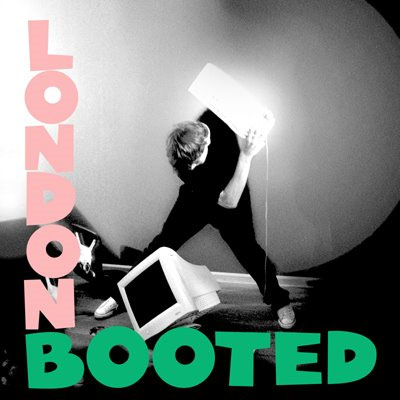
Mashups sind sowas von 2004, ich weiß.
Trotzdem: Mashups sind die konsequente Fortführung des Deejayings mit digitalen Mitteln und leider sind die Anwälte der Musikindustrie ganz scharf darauf, Mashups platt zu machen, wo immer es geht. Nicht, dass es etwas gebracht hätte. Die Mashup Preservation Society dokumentiert nun die wichtigsten Mashup-Alben von Dangermouse‘ „žGrey Album“ bis zum „žLondon Booted“-Sampler und beruft sich dabei auf die amerikanische Fair Use-Regelung. Aus ihrem Mission Statement:
Hello friends. We are a collective of artists, DJs, producers, sound engineers, musicians and music collectors. The mission of the Mashup Preservation Society is to casually document, record and protect the music of the audio „mashup“ style. In general, a mashup is a post-turntablist method of combining elements of two or more songs together to form a new creative. In traditional formats, this includes combining an acapella or vocal track from one song and placing it over an instrumental or dub of another. However, this style can quickly become very complex and lead to creative expression and interpretation regarding editing, mixing and production. In many cases, the result can be a completely new piece of art that would never have existed before otherwise. In others, the result may be as simple as a parody or witty cut-up.
Our stance regarding the legality of mashups is simple: We are documenting a significant and influencial segment of music and artistic history that can not be otherwise preserved by the artists themselves for legal reasons. For educational and historical purposes of preserving the music, we believe this concept is legal under Fair Use. This site, however, is not an excuse to distribute any mashups or remix material under Fair Use. Instead, we select material important to musical history that has influenced and will influence artists and producers for years to follow.
Weil ich das gut finde und weil ich auf Queen und Green Day stehe, am besten gleichzeitig, hier die famose „žNovocaine Rhapsody“ aus Dean Grays „žAmerican Edit“.







Mehr als ein kurzes Lächeln vermochte mir noch kein Mash-Up zu entreissen. Wenn ich die Technologie dahinter nicht kennen würde wäre das vielleicht anders.
Wie ist denn die Technologie dahinter, die dir nicht mehr als ein Lächeln abverlangen kann?
Digitale Audiobearbeitung, sowas wie Photoshop für Musik. Ukulele Orchestra of Great Britain hat ein „žMash-Up“ aus geschätzten 30 Titeln im Programm, aus allen Zeiten und Stilen. Es hat auch Medley Elemente, aber streckenweise reine Mash-Up Technik. Musikalisches Know-How ist hilfreich, aber Hits sind ja oft einfach gestrickt.